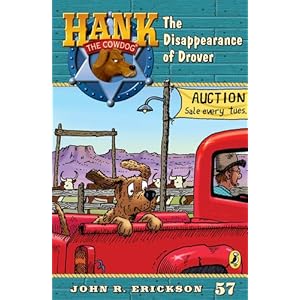While there are many authors who have found success via the traditional road, the field of authors who are finding success using the self-publishing road is growing every day (traffic is picking up). With this in mind, I wanted to invite an author who recently made the decision to jump from one road to the other and self-publish. To that end, take it away Anita Laydon Miller. Tell us about your journey on the road “less traveled by.”
 |
| Anita Laydon Miller |
Thanks, Michael. First of all, I want everyone to know I respect people who dream of traditional publication. It’s a beautiful dream and I wish everyone the best in making that dream reality. And I do not dislike or mistrust agents, editors or publishers…these people have given me treasures in the form of books I’ve read.
Here’s my story:
You know how sometimes when you view a situation through someone else’s eyes, the situation becomes clear? That’s what happened to me.
A couple years ago, I decided I wanted to be a published author, and so I began researching. I learned I needed to write a great book with a unique premise and likeable characters. Then I needed to find a kick-ass agent who would provide me with suggestions to make the manuscript more marketable. Once the suggestions were incorporated, the kick-ass agent would find a publisher for my book. I’d work for several months with an editor at the publishing house, and about a year after the book was edited, it would appear on the shelves of the major bookstores. Then I’d work my tail off marketing the book, but I probably wouldn’t make much money.
I explained the above to my husband, a pragmatic FedEx pilot (with an honest-to-God degree in rocket science) and he was like, “What? You’ve got be kidding me.” I assured him I must follow the publishing rules, and he shrugged and watched the kids, and I wrote.
Lucky me (and I know that sounds sarcastic, but it’s not), I hooked a great agent…she was professional, savvy and fun. We made some changes on my middle grade mystery and she submitted it to about 15 editors. They all said, “No,” but with some positive feedback like, “I want to read everything else she writes.”
Still, I started getting a little suspicious of the process at this point, because in the comments that accompanied the rejections, the editors were often in complete disagreement with each other. I knew it was a subjective industry, but when one editor says something like, “It’s too scary,” and another editor says, “It’s not scary enough,” it gives a person pause.
My husband was especially thrown off by this, but I assured him that’s the way things are done and that I must move on.
So, not to be dissuaded, I started work (also as part of my MFA requirements) on another book—a middle grade science fiction. When it was time to submit, my agent and I decided to send it to only a few editors. The manuscript got rejected, but with some great comments. One editor (at a big house) even had several other editors look at the book. Ultimately she decided not to send it to committee, because (among a couple other reasons), aliens weren’t selling in house—meaning it was difficult to get an alien book sold within the company.
My husband was like, “What? But kids love aliens.” And I started looking at my husband like maybe he was right.
My agent and I reviewed the manuscript again (we both thought this book was a winner) and she suggested some changes. Now, I’ve been a freelance writer for over a decade, and when the person in charge says to make a change, I make it and I make it fast. But not this time. I totally disagreed with the change. My agent and I discussed it and she said that if I didn’t want to make the change, we could shelve the book and move forward on a YA that I’m writing.
My husband was like, “What? You love that sci fi. There must be another way to get it to kids.” And everything became clear to me, because there was another way: epublishing.
My agent and I had a few polite discussions via telephone and email, and we decided (I like to believe amicably) to part ways. I still think she’s a great agent, incidentally, and highly recommend her to anyone seeking an agent.
11 days later, EARTHLING HERO was for sale. Sales have been steady and the marketing experience has been fun. I feel like I own a small business. And I like it.
Here’s what I think: Every writer should investigate independent epublishing before signing with a literary agency or publisher. Buy an ebook in your genre, so you can get over the notion that indie writers’ books suck. They don’t. Read JA Konrath’s blog and Google “Jane Friedman.” Find out the number of sales of Nooks and Kindles. Then you’ll be in a position to make an informed decision.
Below is information about my inexpensive kids’ ebook, a $.99 middle grade science fiction titled EARTHLING HERO. It’s a great family read-aloud. I’m the book columnist for the COLORADO SPRINGS GAZETTE, and I’m always pleased to find family read-alouds to recommend. I had that in mind when I wrote the book.
Imagine waking one summer night to see someone standing beside your bed. The “someone” is a complete stranger, but looks exactly like you. That’s what happens to eleven-year-old Mikey Murphy. The next few days are filled with adventures—breaking into a high-security military installation, engaging expert assassins in hand-to-hand combat, searching for an evil alien’s hideout in the middle of a national landmark—all with two new alien friends at his side. Can Mikey and his friends survive their adventures and save the world?


















